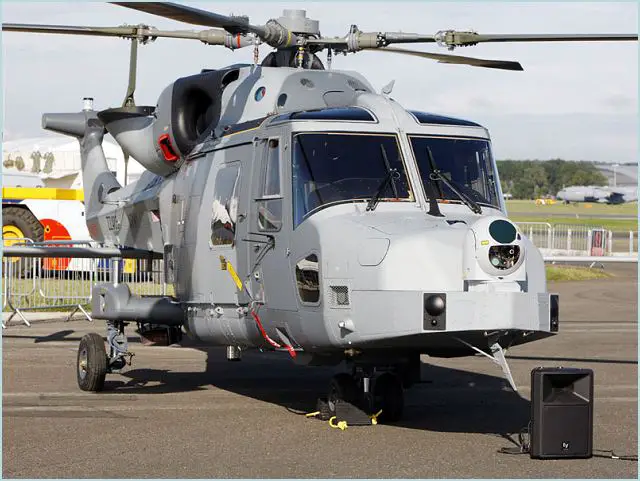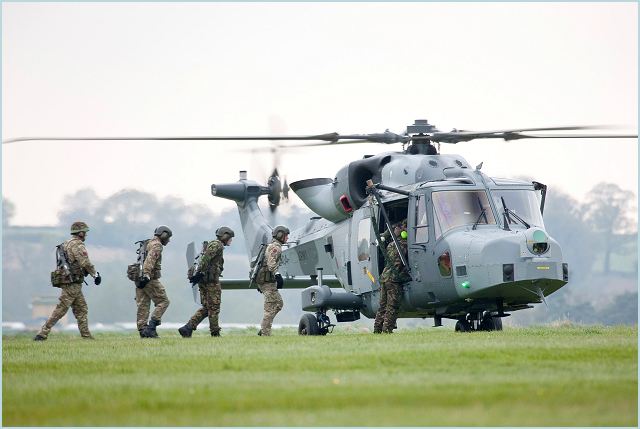Breaking news
AgustaWestland unveils the new Lynx Wildcat AW159 helicopter for the British Armed Forces 1207121.
| a | |||
| |
|||
World
Air Force News - United Kingdom |
|||
AgustaWestland
unveils the new Lynx Wildcat AW159 helicopter for the British Armed Forces.
|
|||
The
first two of 62 Lynx Wildcat AW159 helicopters ordered by the British
MOD were handed over by manufacturer AgustaWestland at the Farnborough
International Airshow. The Somerset-based firm is benefiting from the
£250m support and training contract that is sustaining 500 jobs. |
|||
 One of the first two Army Wildcat helicopters handed over to the MOD by AgustaWestland at the Farnborough International Airshow [Picture: Steve Dock, Crown Copyright/British MOD 2012] |
|||
The MOD is buying
34 Army Wildcats and 28 maritime attack variants, which will replace
the Lynx fleet operated by the Army Air Corps and Fleet Air Arm. The Army Wildcat
will primarily be used in a reconnaissance role, providing protection
to soldiers on the ground. The maritime attack version will protect
the Navy's fleet around the world. The £250m Wildcat in-service support and training contract with AgustaWestland will provide a specialist training centre at Royal Naval Air Station Yeovilton, where the Wildcats will be based, that will include flight simulators and a wide range of other equipment to train pilots, ground crew and engineers. |
|||
 Agusta Westland Lynx Wildcat AW159 (Credit photo Agusta) |
|||
Defence
Secretary Philip Hammond said:
"Wildcat
represents a considerable advance over the current Lynx helicopters, bringing
greatly improved performance and capability. The contract to provide training
and support will keep them flying wherever they are needed. |
|||


























